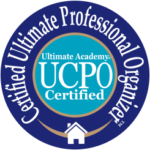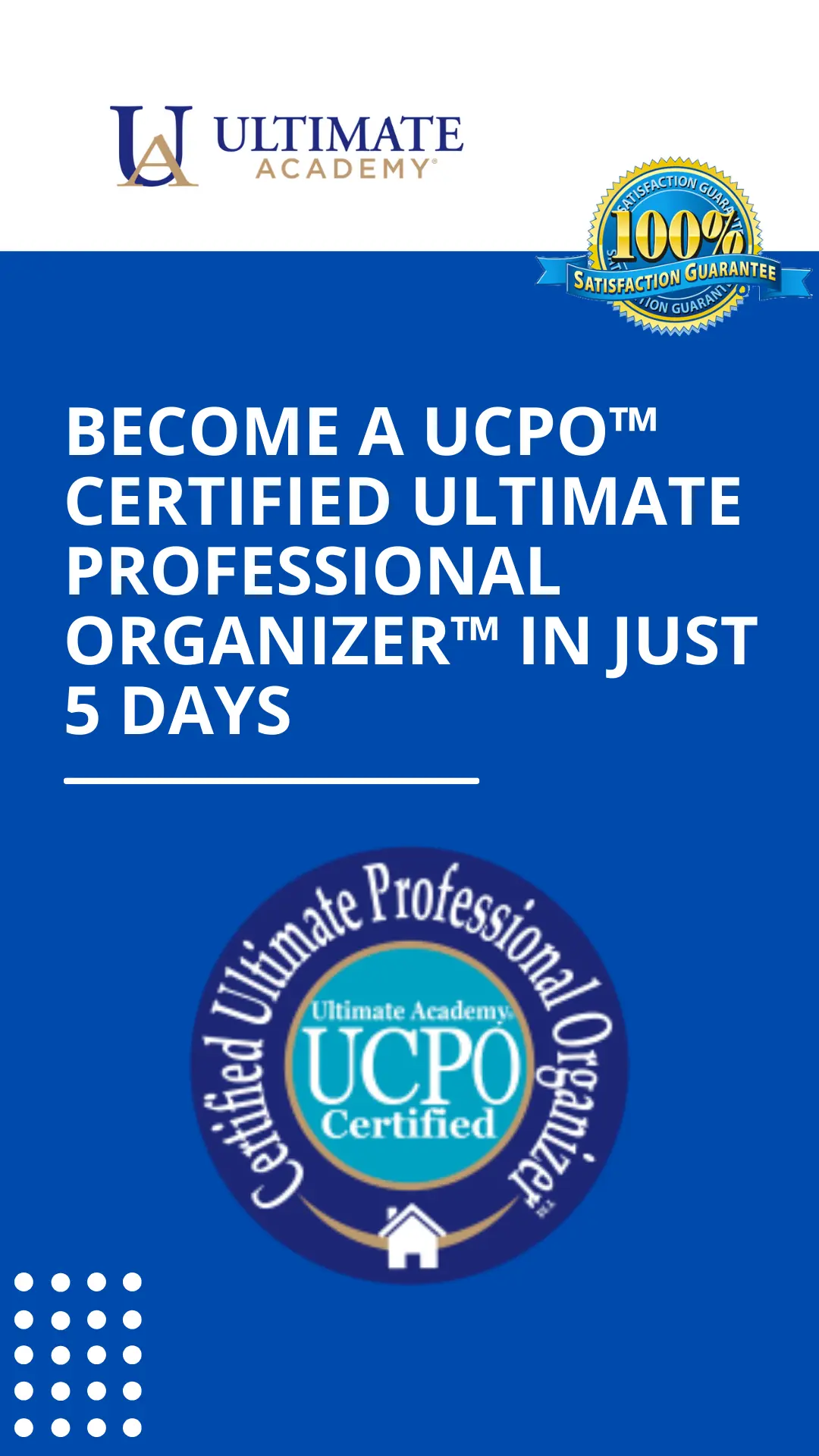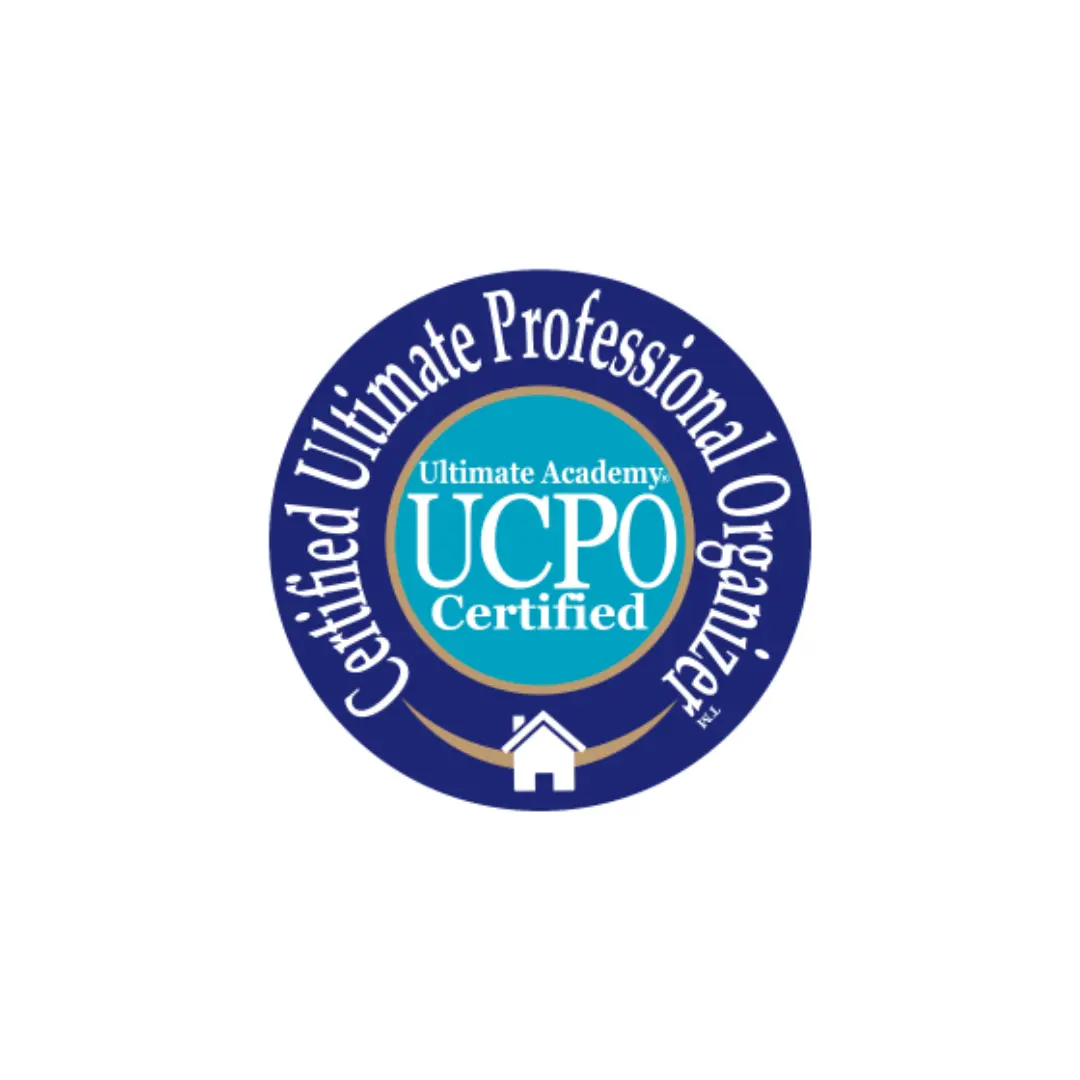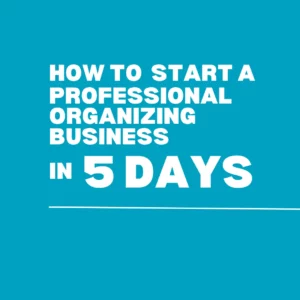A Day in the Life of a Professional Organizer:
What to Expect

Are you considering hiring a professional organizer to help you declutter and streamline your home or workspace? Or maybe you’re interested in pursuing a career in this growing industry? Either way, it’s important to understand what a typical day in the life of a professional organizer entails and what services they offer.
Professional organizers are experts in home organization and provide a range of services to help clients achieve their organizing goals. They work closely with clients to assess their needs, develop personalized plans, and provide guidance and support throughout the organizing process.
Whether you’re looking to declutter your home, streamline your work processes, or simply learn some organizing tips and tricks, a professional organizer can help. Read on to discover what you can expect from a day in the life of a professional organizer.
The Role of a Professional Organizer
A professional organizer’s main goal is to help clients create functional, clutter-free spaces that enhance their daily productivity and overall wellbeing. They work with clients to identify organizing goals, develop personalized plans, and provide guidance and support throughout the organizing process.
The job of a professional organizer requires a unique blend of skills and qualities, including:
- Strong communication and interpersonal skills
- Excellent organizational and time management skills
- Keen attention to detail
- Patience and empathy
- Problem-solving abilities
- Flexibility and adaptability
- Creativity
Professional organizers work closely with clients to assess their specific needs, develop customized organizing solutions, and provide practical advice and support. They may work with clients in various settings, including residential homes, offices, and storage spaces.
Roles and Responsibilities in Professional Organizing
The roles and responsibilities of a professional organizer can vary depending on the specific needs of each client. However, some common tasks and responsibilities may include:
Assessing Client Needs: Conducting an initial consultation with clients to determine their organizing goals and priorities.
Developing Organizing Plans: Creating customized organizing plans based on the client’s needs, preferences, and budget.
Providing Guidance and Support: Offering practical advice, emotional support, and motivation to help clients achieve their organizing goals.
Decluttering and Organizing: Assisting clients with decluttering and organizing their spaces, utilizing various organizing strategies and tools to optimize functionality and efficiency.
Teaching Organizational Skills: Teaching clients new organizational skills and techniques to maintain a clutter-free space and prevent future disorganization.
Collaborating with Other Professionals: Working with other professionals, such as interior designers, architects, and storage specialists, to ensure effective space utilization and organization.
Professional Stager Certification for Career Advancement
If you’re looking for a comprehensive online education to become a professional home stager, Ultimate Academy® is the perfect choice for you. Our online training programs are designed to provide you with the education and credentials necessary to advance your career in the home staging industry.
One of the key benefits of our training programs is the professional stager certification you will earn upon completion. This certification is a testament to your expertise and knowledge in the field of home staging. It sets you apart from your peers and gives you a competitive edge in the job market.
Here are some of the benefits of obtaining a professional stager certification at Ultimate Academy®:
- Recognition and credibility in the industry
- Improved job prospects
- Increased earning potential
- Continued professional development
At Ultimate Academy®, we understand the importance of professional stager certification for career advancement in the home staging industry. That’s why our online training programs are designed to provide you with the education and hands-on experience necessary to earn your certification and take your career to the next level.
Sign up for one of our online training programs today and start your journey towards becoming a certified professional home stager.
Daily Tasks of a Professional Organizer
Professional organizers face a range of daily tasks as they work with clients to achieve their organizing goals. These tasks involve organizing strategies and productivity hacks that streamline clients’ routines and optimize their space. Here are some of the typical daily tasks of a professional organizer:
Create and Implement Organizing Strategies
Professional organizers develop customized organizing strategies that fit each client’s unique needs and goals. They use a range of approaches, such as color-coding, labeling, and storage solutions, to help clients effectively organize their belongings and optimize their space.
Maximize Space and Efficiency
Professional organizers use their expertise to help clients make the most of their space and improve their efficiency. This may involve rearranging furniture, creating new storage solutions, and streamlining workflows to enhance productivity.
Teach Organizing Skills
Professional organizers not only help clients declutter and organize their spaces, but also teach them valuable organizing skills that they can use in the future. These skills may include time management, prioritization, and decision-making strategies.
Work with Clients to Meet Goals
Professional organizers collaborate with clients to set and meet organizing goals. They provide motivation, support, and guidance throughout the process, ensuring that clients achieve sustainable results and maintain organized spaces long-term.
Stay Up-to-Date on Organizing Trends
Professional organizers stay current on organizing trends, tools, and techniques to provide the best possible service to their clients. They are constantly seeking new ways to enhance their organizing strategies and productivity hacks to optimize their clients’ spaces and routines.

Customized Organizing Solutions for Clients
Professional organizers understand that each client has unique organizing needs. That’s why they take a personalized approach to creating customized organizing solutions that fit their clients’ lifestyles and preferences.
Assessing client needs is the first step in creating an effective organizing plan. Professional organizers work closely with their clients to understand their goals and priorities. They may ask questions about daily routines, storage habits, and work habits to gain a comprehensive understanding of the client’s space and organization challenges.
Here are three typical organizing objectives and tailored solutions for each:
Clutter Reduction
- Create designated donation bins
- Develop a system for disposing of unwanted items
- Implement a ‘one-in, one-out’ rule to maintain minimalism
- Schedule regular decluttering sessions
- Use vertical storage solutions to maximize space
- Digitize documents and photographs to reduce physical clutter
Workspace Optimization
- Organize files and paperwork for easy access
- Create a system for tracking deadlines and appointments
- Use drawer dividers and organizers for supplies
- Label shelves and storage areas for quick identification
- Establish a clean-desk policy at the end of each day
- Integrate ergonomic furniture and accessories for comfort
Time Management
- Develop a daily schedule to optimize productivity
- Create a system for prioritizing tasks
- Utilize time-blocking techniques to allocate specific periods for tasks
- Set up reminders and alarms for important deadlines
- Break down large tasks into smaller, manageable steps
- Allocate specific times for checking emails and messages to avoid constant interruptions
Challenges and Rewards of Professional Organizing
Professional organizing can be a fulfilling career, but it also comes with its fair share of challenges. One of the biggest challenges is dealing with cluttered spaces. Helping clients navigate through their clutter can be a daunting task and requires a great deal of patience and empathy. Additionally, time management can also be a challenge, as professional organizers must balance their own schedules while meeting the needs of their clients.
Despite these challenges, the rewards of professional organizing can be significant. Seeing the transformation of a cluttered space into a functional and organized area can be incredibly satisfying. Not only does it improve the physical space, but it also has a positive impact on the mental well-being of clients. The sense of accomplishment and relief that clients feel after decluttering and organizing their space can be truly rewarding.
Another reward of professional organizing is building strong relationships with clients. The collaborative process of creating customized organizing solutions fosters trust and understanding between the professional organizer and their client. This deep sense of connection and the ability to help clients achieve their goals is a significant source of motivation for many professional organizers.
Furthermore, professional organizing provides a platform for personal and professional growth. Developing skills such as problem-solving, communication, and creativity can enhance a professional organizer’s career and life. Additionally, the industry is constantly evolving, offering opportunities for continuing education and innovation.
Efficiency Improvement Techniques for Professional Organizers
As a professional organizer, time is one of your most valuable assets. Efficiency improvement techniques are crucial for maximizing productivity and improving time management skills. Here are some practical tips for enhancing your workflow:
1. Utilize Time-Blocking
Time-blocking is an effective method for organizing your schedule and increasing productivity. It involves breaking down your day into specific time slots for completing tasks. This helps you stay focused and prevents time-wasting distractions. Use a planner or scheduling app to create a structured daily routine.
2. Embrace Technology
There are many innovative tools and software programs available that can streamline your workflow and improve organization. Consider using project management apps, virtual organizing tools, and time-tracking software to enhance your efficiency. These tools can help organize your tasks, track your time, and stay accountable.
3. Delegate Tasks
Delegate tasks to others when possible. This frees up your time and allows you to focus on more important tasks. Consider hiring an assistant or outsourcing administrative or non-essential tasks to independent contractors.
4. Prioritize Tasks
Develop a prioritization system based on the urgency and importance of tasks. This will help you determine which tasks to complete first and prevent procrastination. Use a to-do list or task management app to keep track of tasks and deadlines.
5. Take Breaks
Regular breaks are essential for maintaining productivity and avoiding burnout. Take short breaks throughout the day to recharge and refocus. Go for a walk, do some stretches, or meditate to clear your mind and increase energy levels.
6. Continuous Learning
Continuous learning is key to staying up-to-date with the latest organizing trends and techniques. Attend workshops and conferences, read industry publications, and participate in online forums to expand your knowledge and skillset.
The Value of Support and Training
To succeed in professional organizing, it’s essential to obtain the proper training and support. Ultimate Academy is a leading organization that provides comprehensive training and support to aspiring and established professional organizers.
Their courses cover a range of topics, including business development, marketing, and project management. They also offer ongoing coaching and support to help graduates build successful careers in professional organizing.
If you’re considering a career in professional organizing, Ultimate Academy can provide you with the knowledge, skills, and support you need to thrive.
In conclusion, professional organizing is an incredibly rewarding career that enables you to make a positive impact on people’s lives. Through personalized organizing solutions and a collaborative approach, professional organizers can help clients achieve greater efficiency, productivity, and peace of mind.
Conclusion
Professional organizing is a critical service that plays an essential role in people’s lives. From home organization to decluttering, professional organizers can help clients achieve sustainable results that enhance their quality of life.
Throughout this article, we have explored what professional organizers do, the skills and qualities required for success, and the typical daily tasks involved. We have highlighted the importance of customized organizing solutions tailored to meet individual client needs and the challenges and rewards of the profession.
Efficiency improvement techniques, such as time management skills and organizational tools, can enhance productivity and streamline workflow for professional organizers.

Learn About our Professional Organizing Certification


FAQs about Professional organizing
A professional organizer is not just a decluttering expert; they are trained to understand the psychology of organization and how it impacts daily life. They work with a variety of clients, from individuals struggling with hoarding tendencies to businesses needing streamlined processes. Professional organizers are skilled in creating custom solutions that cater to unique lifestyles and work habits, ensuring that the systems they put in place are sustainable and user-friendly.
The range of services offered by professional organizers extends beyond mere tidying up. They might specialize in specific areas like wardrobe organization, digital file management, or setting up efficient home offices. Some even offer coaching on time management and productivity techniques, helping clients to develop habits that promote ongoing organizational success. For businesses, organizers can devise strategies to improve workflow, enhance team collaboration, and create spaces that boost morale and productivity.
Working with a professional organizer can lead to profound changes in how you interact with your space. They can transform chaotic, cluttered areas into serene, functional environments. For those overwhelmed by the sheer volume of belongings, organizers can provide compassionate support and strategies for letting go of items that no longer serve a purpose. They also offer systems and tools for keeping your space organized in the long term, turning chaos into order.
The length of the organizing process can be as diverse as the clients’ needs. A single-room project might take only a few hours, while a whole-house organization, or tackling a particularly cluttered space, can span several sessions over weeks or months. Professional organizers often tailor their schedules to fit the client’s lifestyle, offering flexibility for larger or more complex projects.
Pricing for professional organizing services can vary widely. Some organizers charge an hourly rate, while others may offer package deals for larger projects. Factors influencing cost include the complexity of the job, geographical location, and the organizer’s level of expertise and reputation. It’s a good idea to discuss budget and expectations upfront to find a service that matches your financial and organizing needs.
Professional organizers prioritize your comfort and emotional well-being. Their goal is not to force you to part with your possessions but to help you make decisions that enhance your space and life. They offer strategies for sorting and deciding on items, always respecting your attachment and decisions regarding your belongings.
Absolutely! In the digital age, clutter isn’t just physical. Professional organizers can tackle digital clutter, helping to streamline your digital files, email management, and online data. They can set up systems to ensure your digital life is as organized and efficient as your physical space, leading to better productivity and reduced digital stress.
Your involvement in the organizing process can vary. While your input is crucial during the planning stages to ensure the solutions align with your preferences and lifestyle, you don’t always need to be present during the actual organizing. Professional organizers can work independently, keeping you updated on progress and any decisions that need your input.
Maintaining an organized space post-consultation is key. Professional organizers often provide tips, tools, and strategies tailored to your habits and preferences. This might include daily or weekly routines for tidying up, systems for handling incoming mail or paperwork, and advice on how to avoid accumulating clutter. Regular review and adaptation of these systems can help ensure that your space remains organized and functional long-term.









